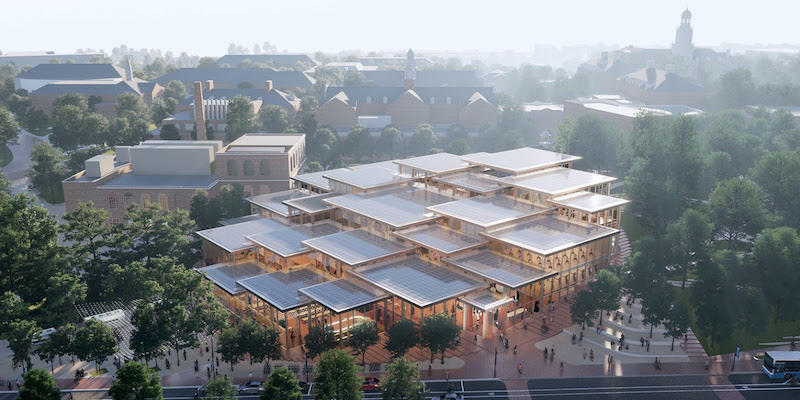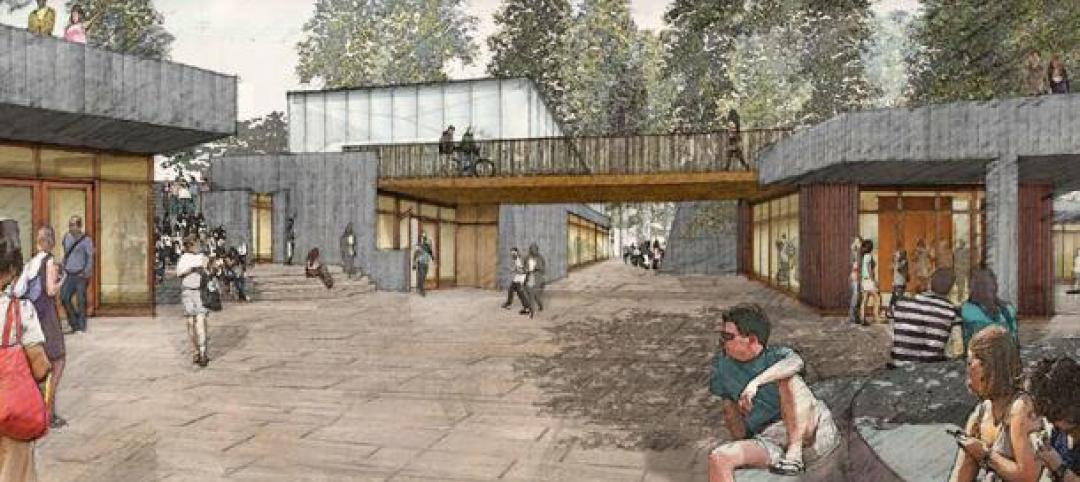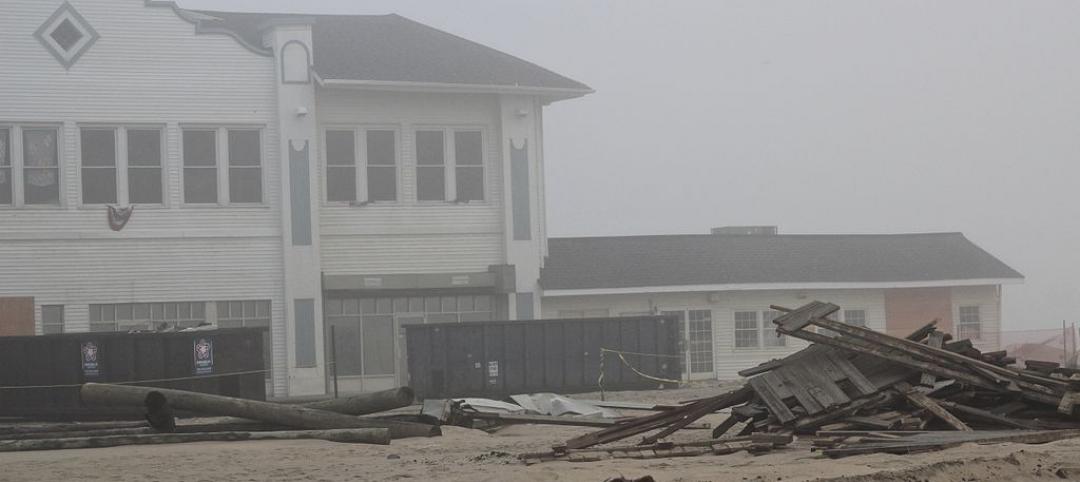BIG has been selected by Johns Hopkins University to design the Hopkins Student Center, or ‘The Village.’ The project will be an open, modern, welcoming facility that will act as a social engagement hub for all members of the Hopkins community.
The 150,000-sf building will include spaces for relaxation and socialization, creative and performing arts spaces, student resources and support spaces, lounges, a digital media center, a performance space with seating for 200 people, and a dining hall that connects directly to a new plaza along Charles Street.
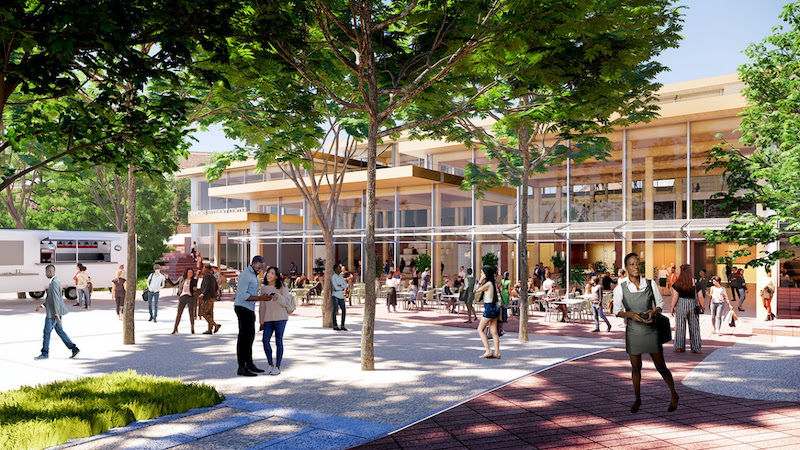
The Village will be strategically located on campus at the intersection of 33rd and Charles Streets and is conceived as a central living room surrounded by a collection of spaces tailored to the needs of the Hopkins community. It will turn the area into a hub that acts as a natural gateway connecting Charles Village and more than 3,500 Hopkins students who live in the neighborhood, to the heart of the Homewood campus.
Upon entering The Village, visitors will be met with a cascading interior landscape of dining, performance, lounging, and socializing. The mass timber structure will provide a warm and acoustically comfortable environment filled with natural light that filters between photovoltaic roof panels.
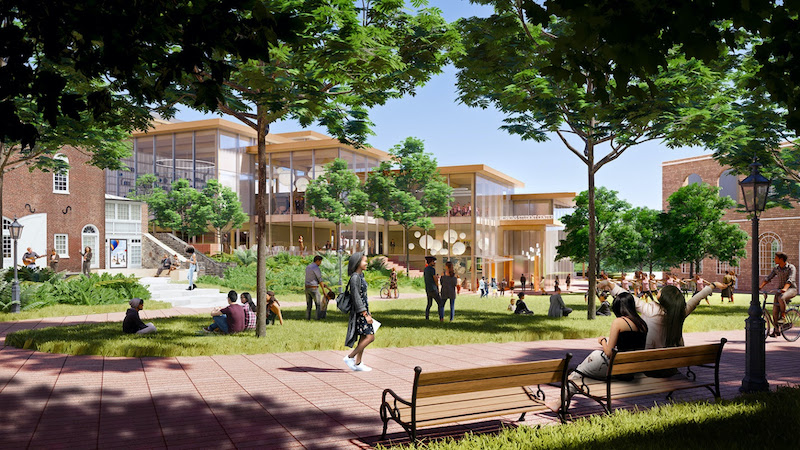
The interior landscape comprises a cluster of flexible spaces that open out on to four rejuvenated public spaces: an events-focused commons, the shaded paths of the Grove, an entry plaza at 33rd Street, and a new food market and plaza to the south. A new central plaza will also be included that can host pop-up exhibits or performances, vendors, and food trucks.
The Hopkins Student Center is set to begin construction in spring 2022 and is slated for completion by fall 2024. BIG is teaming with Shepley Bulfinch (Architect of Record), Rockwell Group (interior design), and Michael Van Valkenburg Associates (landscape design) on the project.
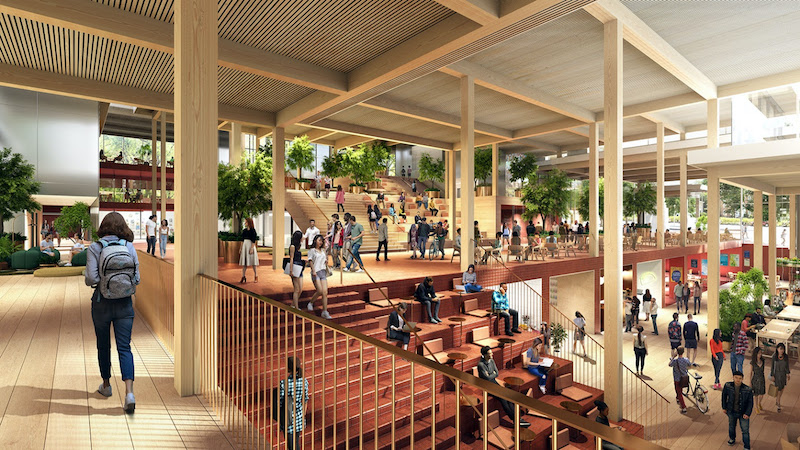
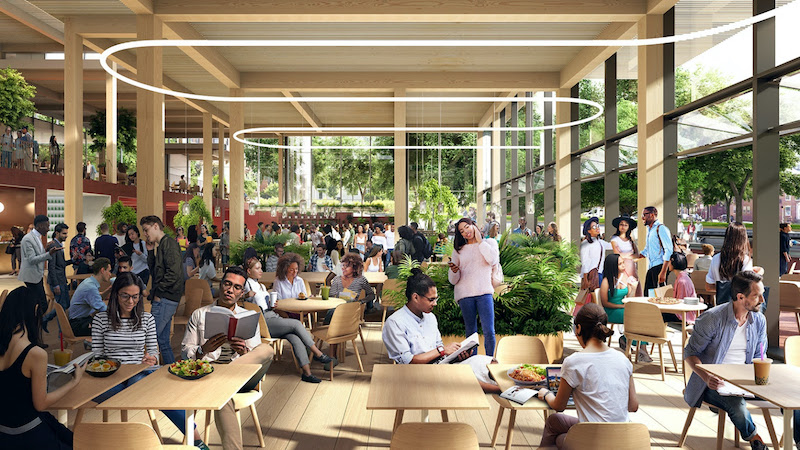
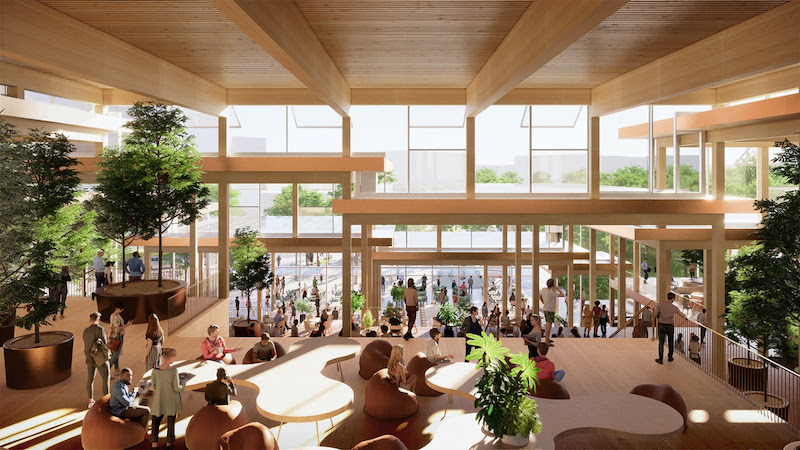
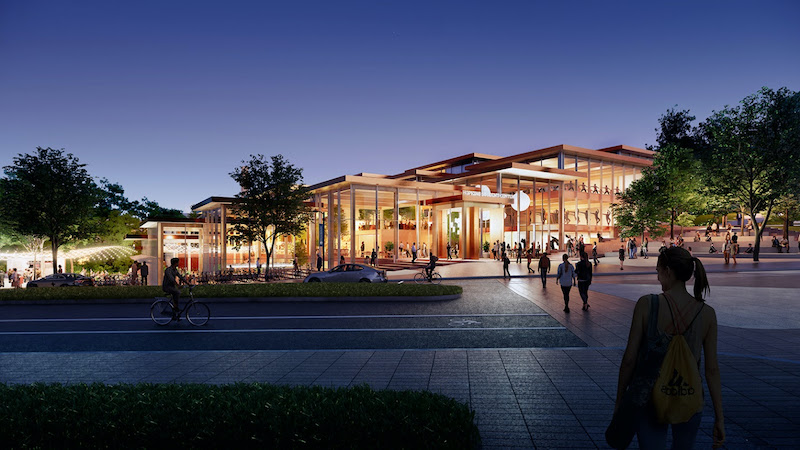
Related Stories
| Jun 12, 2014
Tod Williams Billie Tsien Architects' design selected for new UCSC facility
The planned site is a natural landscape among redwood trees with views over Monterey Bay, a site that the architects have called “one of the most beautiful they have ever worked on.”
| Jun 12, 2014
Austrian university develops 'inflatable' concrete dome method
Constructing a concrete dome is a costly process, but this may change soon. A team from the Vienna University of Technology has developed a method that allows concrete domes to form with the use of air and steel cables instead of expensive, timber supporting structures.
| Jun 11, 2014
5 ways Herman Miller's new office concept rethinks the traditional workplace
Today's technologies allow us to work anywhere. So why come to an office at all? Herman Miller has an answer.
| Jun 9, 2014
6 design strategies for integrating living and learning on campus
Higher education is rapidly evolving. As we use planning and design to help our clients navigate major shifts in culture, technology, and funding, it is essential to focus on strategies that help foster an education that is relevant after graduation. One way to promote relevance is to strengthen the bond between academic disciplines and the campus residential life experience.
| May 29, 2014
7 cost-effective ways to make U.S. infrastructure more resilient
Moving critical elements to higher ground and designing for longer lifespans are just some of the ways cities and governments can make infrastructure more resilient to natural disasters and climate change, writes Richard Cavallaro, President of Skanska USA Civil.
Sponsored | | May 27, 2014
Grim Hall opens the door to fire safety with fire-rated ceramic glass
For the renovation of Lincoln University’s Grim Hall life sciences building into a state-of-the-art computer facility, Tevebaugh Associates worked to provide students and faculty with improved life safety protection. Updating the 1925-era facility's fire-rated doors was an important component of the project.
| May 20, 2014
Kinetic Architecture: New book explores innovations in active façades
The book, co-authored by Arup's Russell Fortmeyer, illustrates the various ways architects, consultants, and engineers approach energy and comfort by manipulating air, water, and light through the layers of passive and active building envelope systems.
| May 19, 2014
What can architects learn from nature’s 3.8 billion years of experience?
In a new report, HOK and Biomimicry 3.8 partnered to study how lessons from the temperate broadleaf forest biome, which houses many of the world’s largest population centers, can inform the design of the built environment.
| May 13, 2014
19 industry groups team to promote resilient planning and building materials
The industry associations, with more than 700,000 members generating almost $1 trillion in GDP, have issued a joint statement on resilience, pushing design and building solutions for disaster mitigation.
| May 11, 2014
Final call for entries: 2014 Giants 300 survey
BD+C's 2014 Giants 300 survey forms are due Wednesday, May 21. Survey results will be published in our July 2014 issue. The annual Giants 300 Report ranks the top AEC firms in commercial construction, by revenue.


